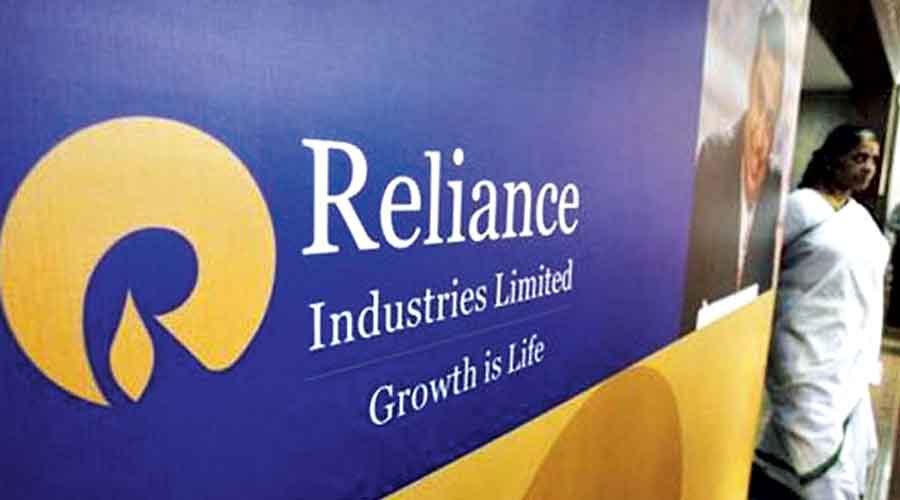Reliance Industries, operator of the world’s largest refining complex, is snapping up Russian refined fuels, including rare purchases of naphtha, after some Western buyers stopped Russian imports, trade flows data from Refinitiv showed.
Western sanctions against Russia over its invasion of Ukraine have led to an emergence of rare trade routes for Russian crude and refined products that were mainly sold to European countries.
South Korea has started importing naphtha from Tunisia, which in turn has seen a jump in supplies from Russia.
South Korea, the world’s largest importer of naphtha, last year bought 590,000 tonnes of the fuel used in petrochemicals from Russia, or nearly a quarter of its total naphtha imports, according to trade flow data from Refinitiv.
Seoul imported 740,000 barrels — or about 82,000 tonnes — of naphtha from Tunisia last month. That compares with none in the whole of 2021 and just 192,000 barrels in November 2020 — the only prior month of naphtha imports from Tunisia in KNOC data doing back to 2019.
Seoul is also set to receive about 274,000 tonnes of naphtha this month from Tunisia, according to the Refinitiv data.
“Re-routing is mainly to avoid the scrutiny of the West and take advantage of cheaper Russian barrels,” Manish Sejwal, vice-president of market analysis at Rystad Energy, said of the new trade route.
India imported about 410,000 tonnes of naphtha, used for making petrochemicals, in September-October, the Refinitiv data showed.
Of this figure, Reliance received about 150,000 tonnes from the Russian ports of Ust-Luga, Tuapse and Novorossiysk during the two months, the data showed.
The private refiner did not buy Russian naphtha in 2020 and 2021. Its annual imports of Russian naphtha were restricted to just one parcel in four years to 2019.
The data showed a panamax carrier Okyroe sailing towards India laden with about 59,000 tonnes of Russian naphtha.
“With European countries shutting down Russia, they need to find outlets for their naphtha,” a trader based in India said, referring to Russian firms. Russian naphtha is being sold at lower premiums to countries like India, two Asian naphtha traders said.
Oil imports surge
Reliance, its two plants can jointly process 1.4 million barrels of oil a day, has emerged as a key buyer of Russian oil since Moscow’s February military action in Ukraine.
It also buys straight run fuel oil from countries, including Iraq and Russia, to process at cokers in the two refineries in Gujarat to boost refining margins.
Reliance’s fuel oil imports from Russia have surged to a record 3 million tonnes since the beginning of this fiscal year in April, versus about 1.6 million for all of 2021-22, Refinitiv data shows.
Reliance is expected to receive about 409,000 tonnes of fuel oil in December, the data showed. Reliance did not respond to Reuters emails.
Russians bear crude risk cover
New Delhi: India would continue to buy oil from Russia, a day after the European Union governments tentatively agreed to a $60 per barrel price cap for the Ural crude. The EU formally agreed on the cap on Friday.
“Unlike Iran and Venezuela, there are no sanctions on oil from Russia. Anyone who can arrange for shipping, insurance and financing outside of the EU can buy oil. We will continue to buy oil from anywhere in the world including Russia. Nobody is saying don’t buy Russian oil,” an oil ministry official said.
Sources said India gets Russian oil at an average discount of around $15-20 per barrel on a delivered-at-place (DAP) basis, where the seller bears the transportation risk. The Russians are bearing the insurance and other risks and delivering the crude to ports such as Paradip.
Russia and buyers of its oil need to use ships, insurance and financing outside the jurisdiction of the G7.
The official said there were many gaps that needs to be filled up and one would know the final decision when the fine print is out.“The issue was not very clear still and there will be more on the matter if and when the final price is announced.”
The ministry official said refiners would continue to lift Russian oil beyond January 19. Vessels of Russian petroleum that are loaded before December 5 and unloaded at their destination before January 19, will not be subject to the cap.
OUR SPECIAL CORRESPONDENT











